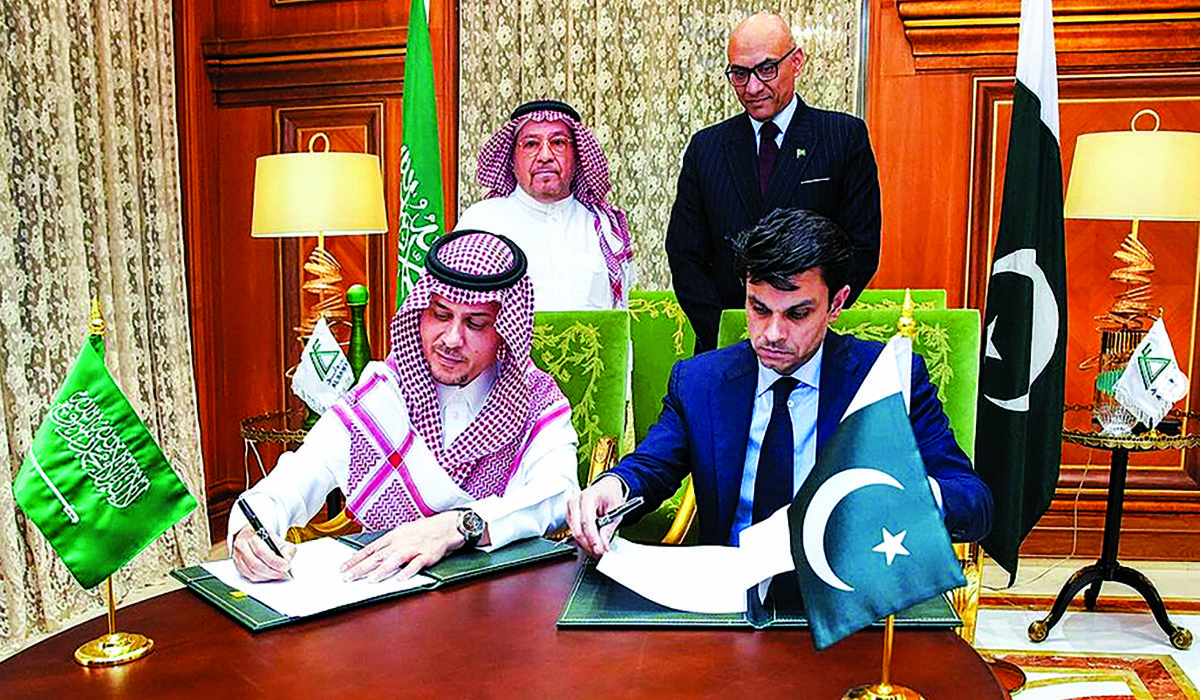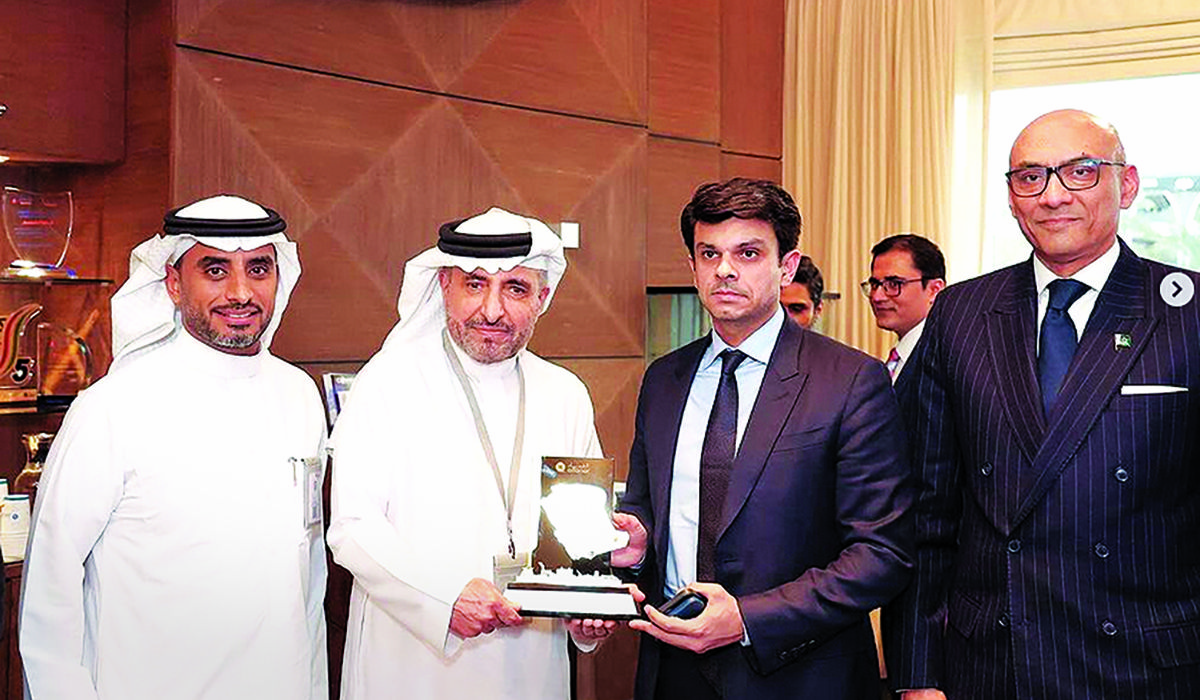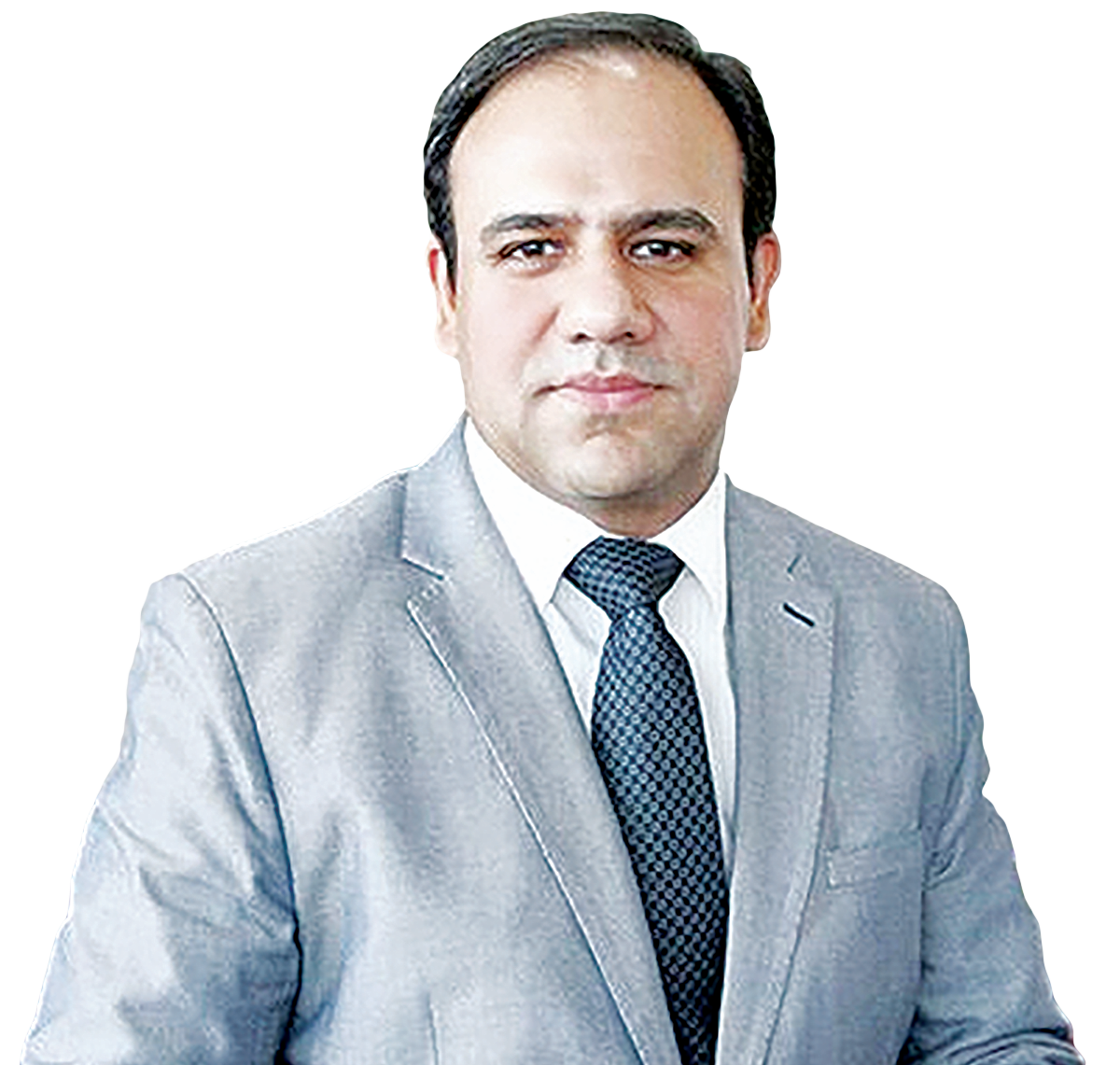RIYADH: Pakistan aims to bolster its workforce in Saudi Arabia’s developing projects to boost collaboration with the Kingdom’s government and the private sector, according to a senior official from the Asian nation.
Jawad Sohrab, special assistant to Prime Minister Anwaar-ul-Haq Kakar on overseas Pakistanis and Human Resource Development, told Arab News his country is focused on ensuring workers coming to the Kingdom have the required skill sets.
He also underscored the strong and deep “brotherhood” relations between Saudi Arabia and Pakistan – evident by the almost 3 million-strong Pakistani diaspora in the Kingdom.

Jawad Sohrab met with government ministers and top Saudi companies to highlight the need and advocate for more opportunities for Pakistani skilled and unskilled labor workforce in a broader range of sectors, including construction, hospitality, services, nursing and care. (Supplied)
“There are a lot of projects ongoing in Saudi Arabia and we want to enhance the number of Pakistani workers in these projects. Saudi Arabia is progressing at a very rapid pace, so we want to be part of that journey of Saudi Arabia for the next few years,” Sohrab said.
The demand spans various sectors, including healthcare, information technology, and construction.
Sohrab was keen to point out the demand in the Kingdom was ever-changing, and would require flexibility when it comes to workforce planning.
Saudi Arabia is progressing at a very rapid pace, so we want to be part of that journey of Saudi Arabia for the next few years.
Jawad Sohrab, Special assistant to Prime Minister Anwaar-ul-Haq Kakar on overseas Pakistanis and Human Resource Development
“There’s a lot of requirements in the construction sector, so we are focusing primarily on the construction sector. As time progresses when these projects are complete in the next few years, then we would perhaps focus more on the service industry,” he said.
He added: “Once this entire development progress is complete in Saudi Arabia, you would then move on to the next phase, which would be healthcare … hospitality, the various other sectors that would come into place after the construction industry progresses.”

Jawad Sohrab met with government ministers and top Saudi companies to highlight the need and advocate for more opportunities for Pakistani skilled and unskilled labor workforce in a broader range of sectors, including construction, hospitality, services, nursing and care. (Supplied)
The adviser made the remarks during a visit to Saudi Arabia, which he said was focused on meeting members of the Kingdom’s private sector as well as with “government enterprises in relation to human resource.”
He said the focus is on the construction, IT, mining, and agriculture sectors, so that he can “assess the demand and the skill set required.”
FASTFACT
The significant number of Pakistanis working in Saudi Arabia, representing 12 percent of expats, could increase thanks to these developments, which include the Red Sea Project, the development and extension of Makkah, and the $500 billion city of NEOM.
Sohrab added: “We would then go back, train [them] and hopefully be able to secure the supply for the demand driven human resource that Saudi Arabia requires.”
Additionally, on the sidelines of his visit to Saudi Arabia, Pakistan’s Overseas Employment Corporation has signed memorandums of understanding with various private companies in the Kingdom.

Jawad Sohrab met with government ministers and top Saudi companies to highlight the need and advocate for more opportunities for Pakistani skilled and unskilled labor workforce in a broader range of sectors, including construction, hospitality, services, nursing and care. (Supplied)
“Saudi Arabia requires human resource, and Pakistan has excessive human resource,” Sohrab underlined.
Adding that it is a “win-win situation for both the countries.” as the Kingdom would benefit in terms of all the labor it requires to build up all projects related to the Vision 2030 initiative to diversify the economy away from oil.
The adviser also said the significant number of Pakistanis working in Saudi Arabia, representing 12 percent of expats, could increase thanks to these developments, which include the Red Sea Project, the development and extension of Makkah, and the $500 billion city of NEOM.

Umar Saif, Pakistan’s caretaker Information Technology Minister
According to the Pakistani Ministry of Overseas Pakistanis and Human Resource Development, Sohrab met with government ministers and top Saudi companies to highlight the need and advocate for more opportunities for Pakistani skilled and unskilled labor workforce in a broader range of sectors, including construction, hospitality, services, nursing and care.
Pakistan and Saudi Arabia have deep cultural, defense and economic ties rooted in history and religion, with the Kingdom the largest contributor to remittance inflows into the South Asian country.
We’re looking at opportunities for our startups to come here and raise investments from Saudi investors. These startups have raised over $800 million in just the last two years and are now at a point where they’re about to take off.
Umar Saif, Pakistan’s caretaker Information Technology Minister
The visit aims to align the country’s workforce with Saudi Arabia’s economic transformation program under Vision 2030, a strategic development framework intended to cut the Kingdom’s reliance on oil, and foster a strong partnership for mutual benefit, according to the ministry.
In October, Pakistan’s caretaker Information Technology Minister Umar Saif announced that Saudi Arabia is set to create a dedicated desk to streamline the registration of Pakistani IT companies seeking to establish themselves in the Kingdom.
This development coincided with the signing of a memorandum of understanding in Riyadh between the two nations to bolster bilateral cooperation in information technology.
According to a statement by the Pakistan Embassy in Riyadh, the agreement focuses on accelerating digital transformation, fostering innovation and advancing digital infrastructure.
The MoU, signed by the Saudi Minister of Communication and Information Technology Abdullah Al-Swaha, stated that both countries will encourage small and medium-sized enterprises and startup ecosystems.
They plan to collaborate on initiatives related to the transfer of businesses and the exchange of information on accelerators and incubators for emerging technology.
“We’re looking at opportunities for our startups to come here and raise investments from Saudi investors. These startups have raised over $800 million in just the last two years and are now at a point where they’re about to take off. I think each of these startups has the potential to become a billion-dollar company,” Saif told Arab News in October.














